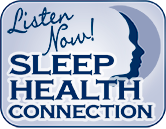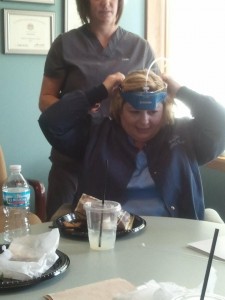What do they have in common?
Biggest Loser Contestants are serious about losing weight. If you are serious about losing weight or maintaining your current weight, you really need to do 3 things:
- get the right amount of sleep
- exercise
- eat right
Sleep + Exercise + a Healthy Diet = Weight Loss
What has medical research found? Well, when you’re sleep deprived, your hormone levels that influence your eating behavior increase. At the same time your leptin (which tells your brain to stop) levels decrease. This leads to an increased craving for food and not feeling full. Adding to the problem, sleep deprived people tend to chose different foods to snack on -mainly high calorie sweets and salty and starchy foods.
Did you know
- Approximately 65% of Americans are overweight or obese
- 63% of Americans report they do not get at least 8 hours of sleep per night
What can you do to stop this lack of sleep and overeating circle? The number one way is to get the sleep you need EACH night. Most adults need 7 to 9 hours. Set a sleep pattern for yourself and get yourself into a regular sleep routine. Start with the minimum of 7 hours for a consecutive week. If you awake unrested, add 30 minutes each night until you notice your alertness return and your appetite decrease.
What did the Biggest Loser Contestant do to help with weight loss?
You can read more here from the National Sleep Foundations Blog about Sherry and her daughter Ashley’s sleep apnea diagnosis and CPAP use: National Sleep Foundation Blog Article
Did Sherry and Ashley have any treatment options available to them in additon to CPAP Therapy?
Professional Oral Appliance Therapy is an option for treating mild to moderate sleep apnea. Oral Appliance Therapy (OAT) – is a conservative treatment option using an oral appliance for patients to wear during sleep. These devices change the position of mouth structures to maintain an open, unobstructed airway in the throat. There are many types of oral appliances and selection as to which is to be constructed is based on many patient parameters. Proper design, construction, and follow-up care of these devices requires a trained dentist and in depth knowledge of jaw joints and sleep disorders. This type of treatment is “site specific” in that an OAT will have no effect on obstructions high in the upper airway or low in the airway. Patients usually prefer oral appliances to CPAP.
Advantages of using an Oral Appliance (OA)
- Oral appliances are small and convenient making them easy to carry when traveling
- Treatment with oral appliances is reversible and non-invasive
- After becoming acclimated to wearing the appliance, most people find them easy to wear and more comfortable than the nCPAP.
- Quiet
- Easily adjustable
- More comfortable than CPAP resulting in increased use
Latest Research Shows 60% of Recommended CPAP Patients Are Not Following Through With Their CPAP Therapy. Are you One of These Patients?
YES, there is another option for you if you are one of the thousands that have been diagnosed with OSA (Obstructive Sleep Apnea) and are struggling with even the thought of CPAP therapy. Oral Appliance Therapy (O.A.T.) may be the answer for you. Although CPAP therapy has been considered the gold standard of care and 1st line of treatment for apnea, O.A.T has now been elevated to the new standard of care by physicians for mild to moderate OSA patients or severe who can not tolerate CPAP therapy.







(630) 369-5508